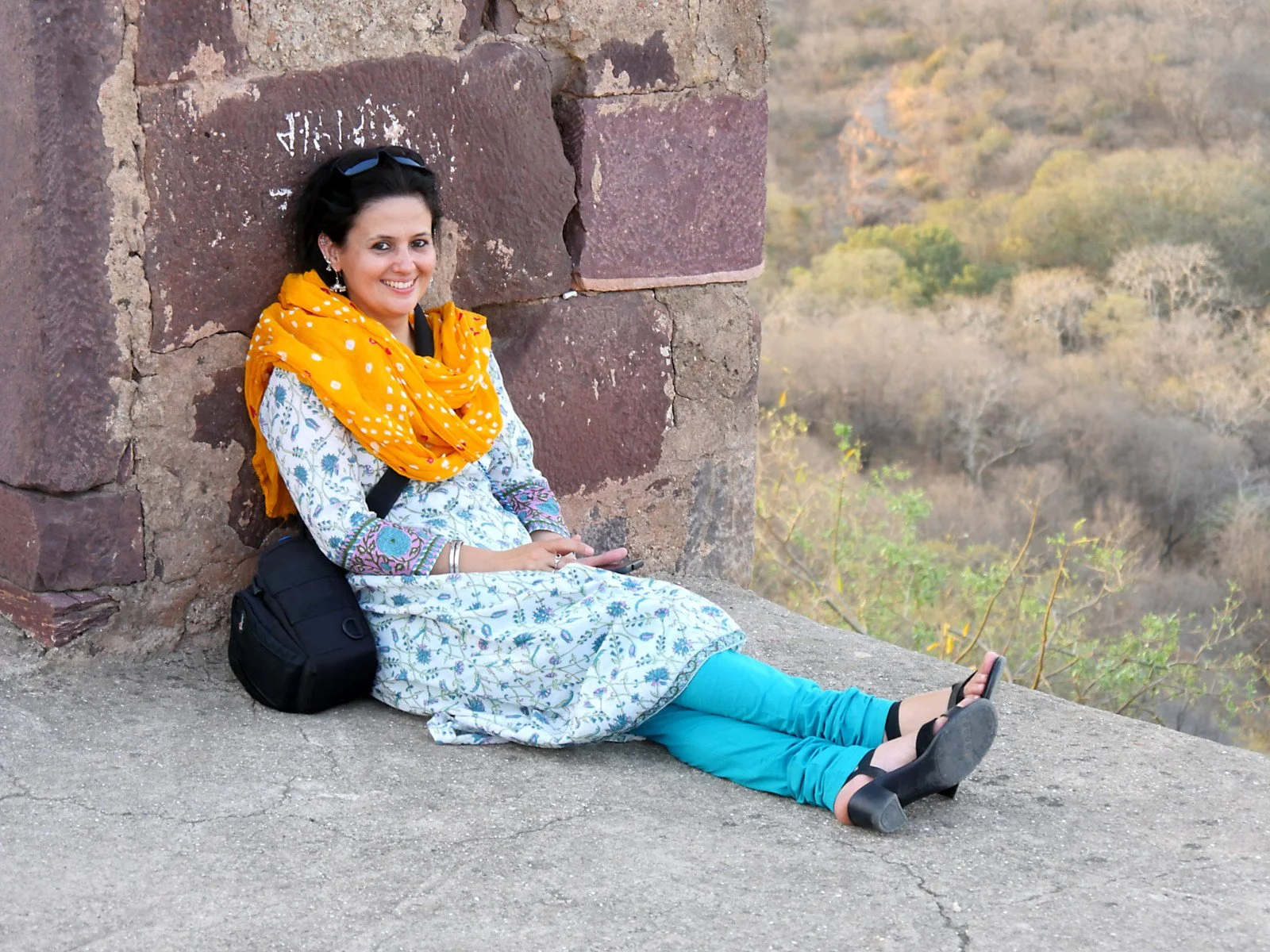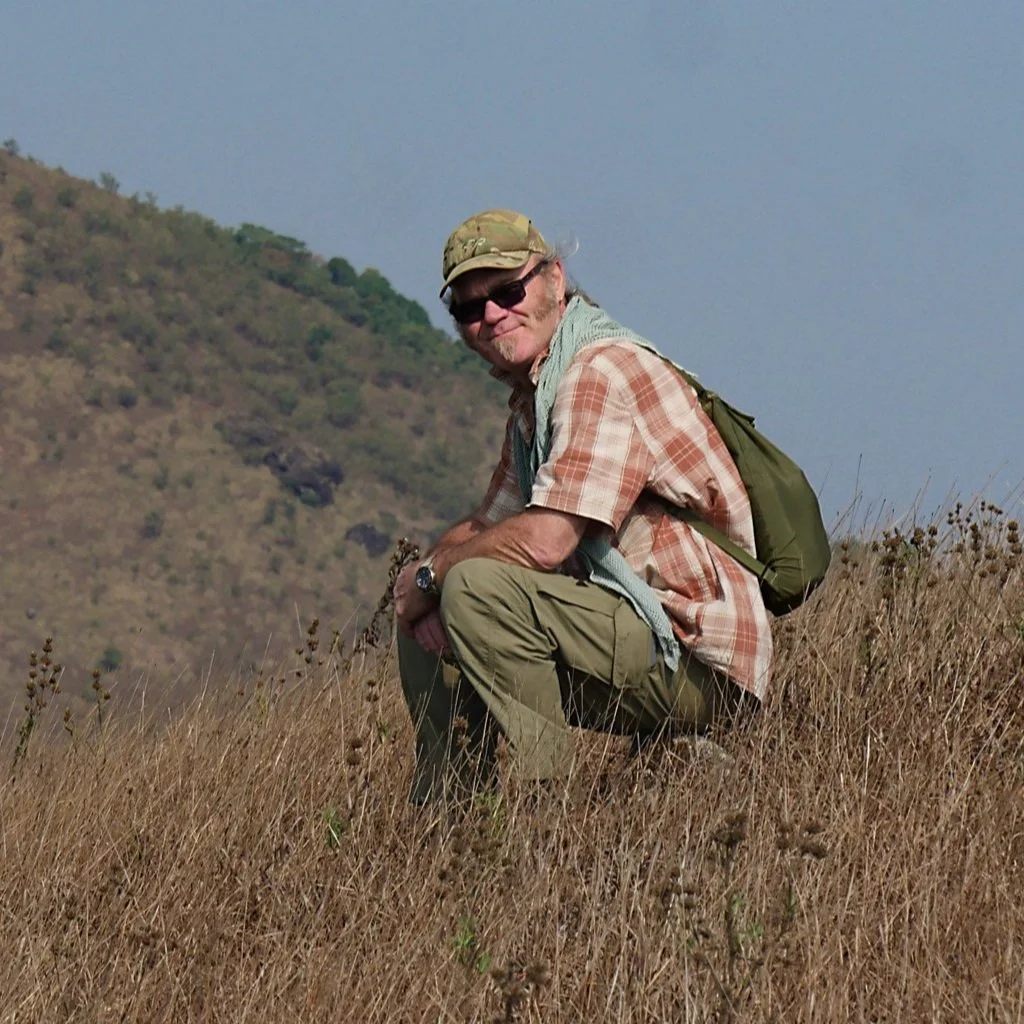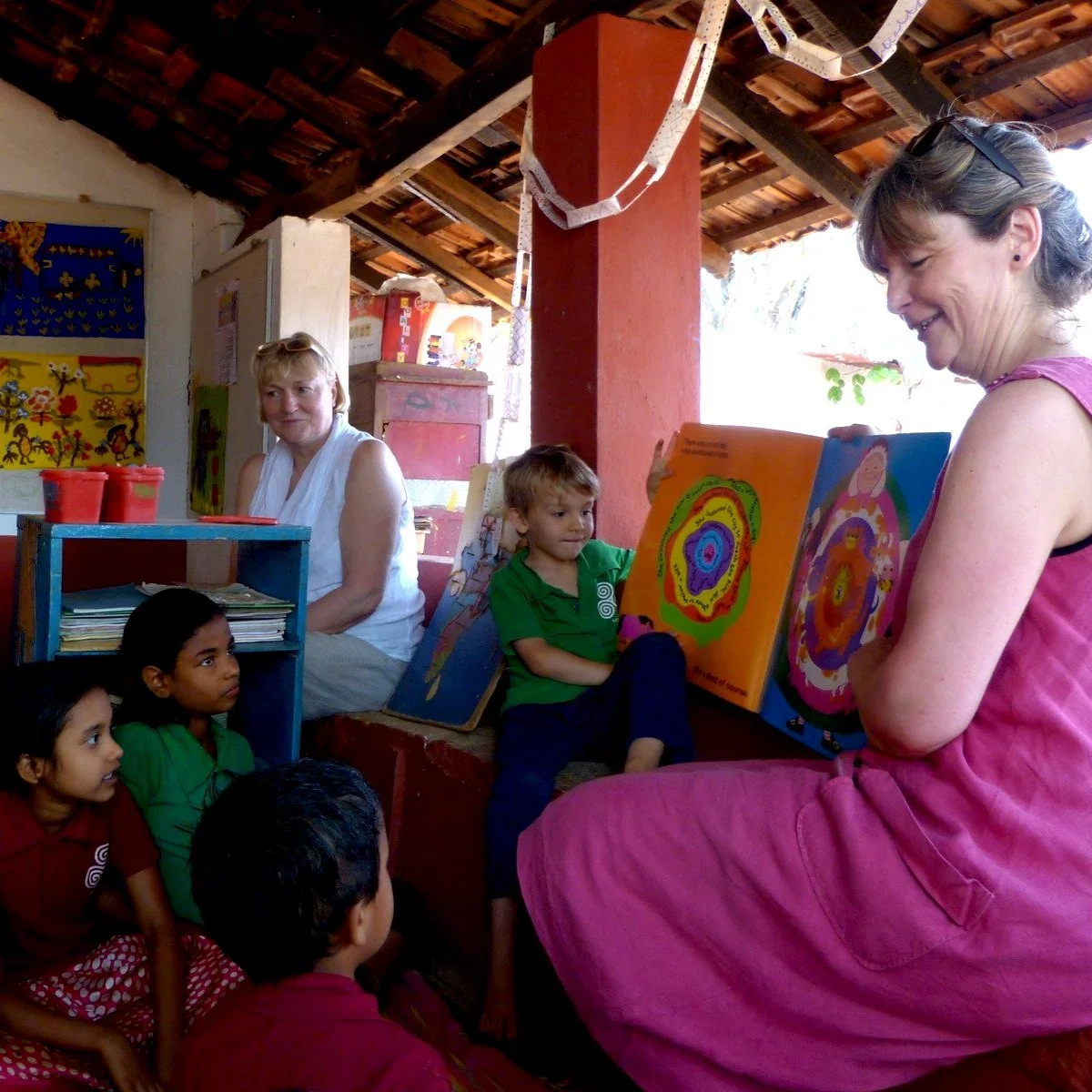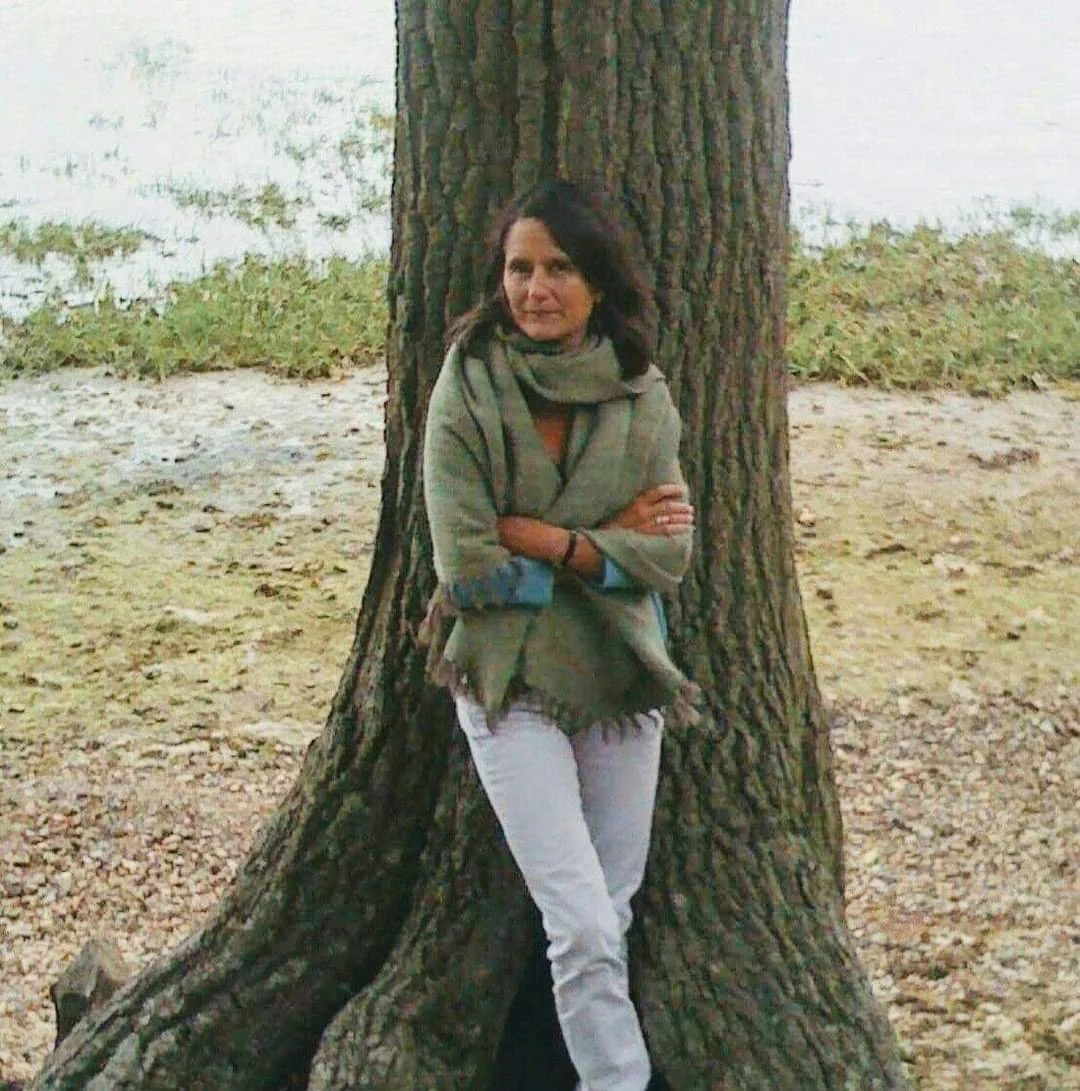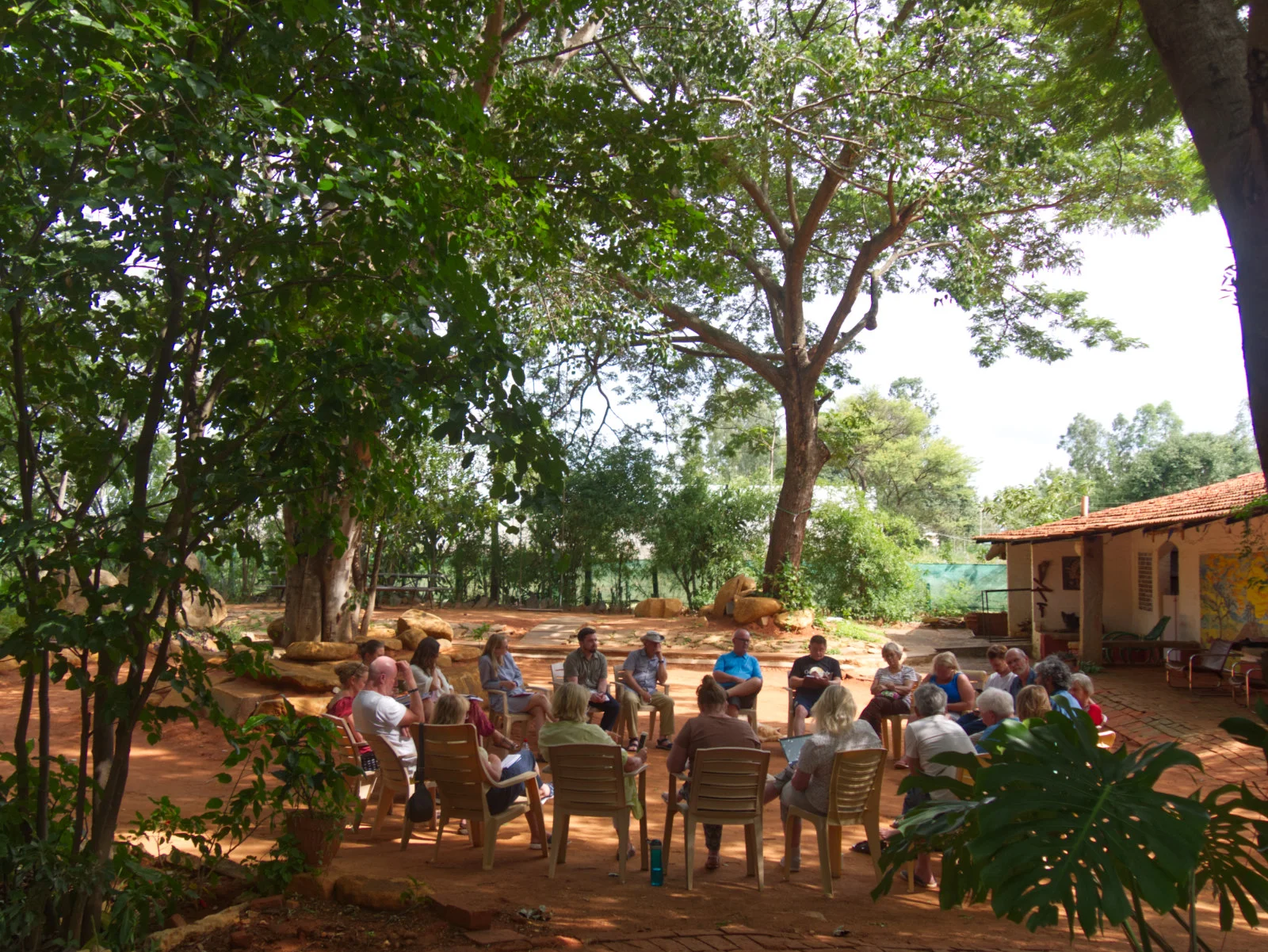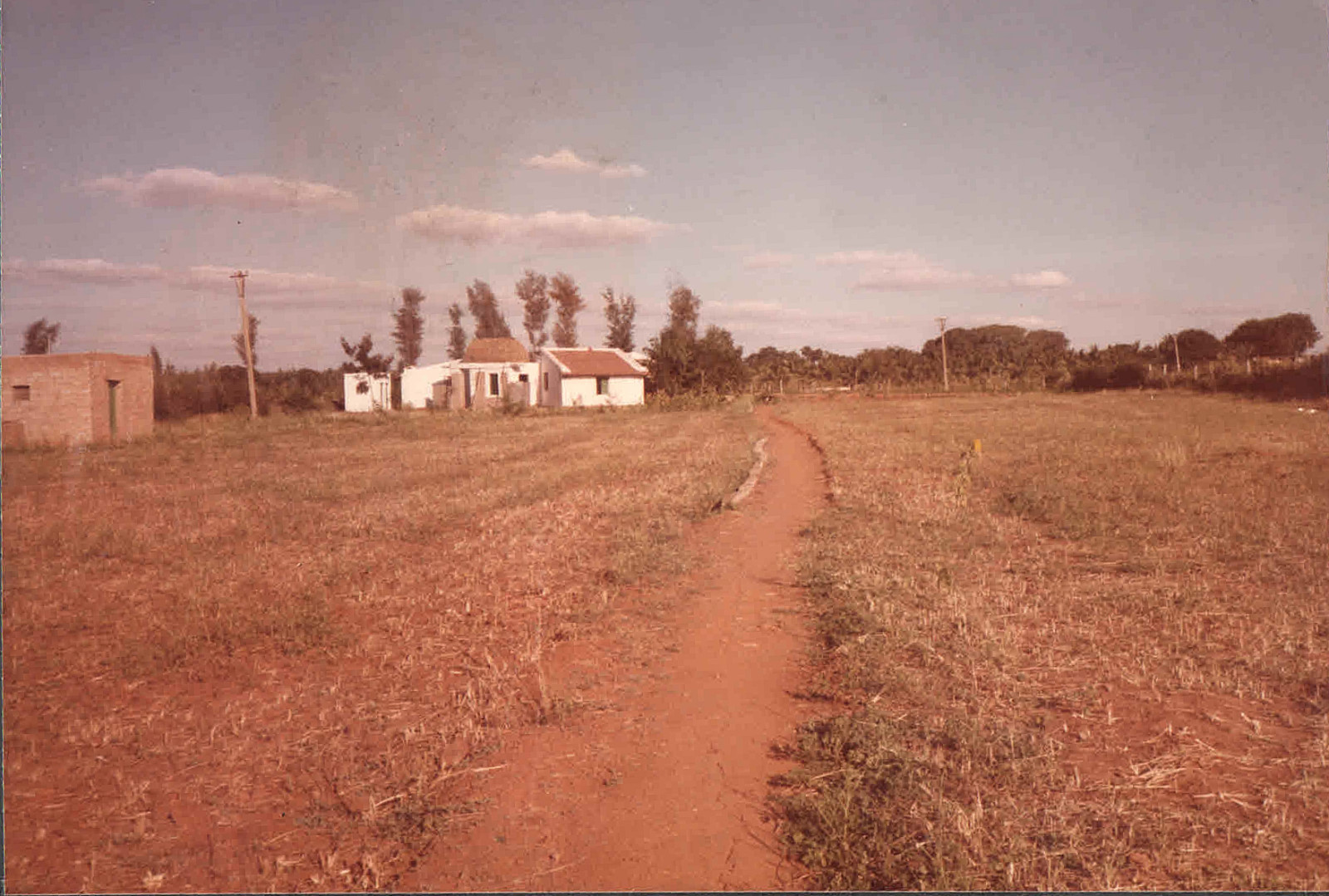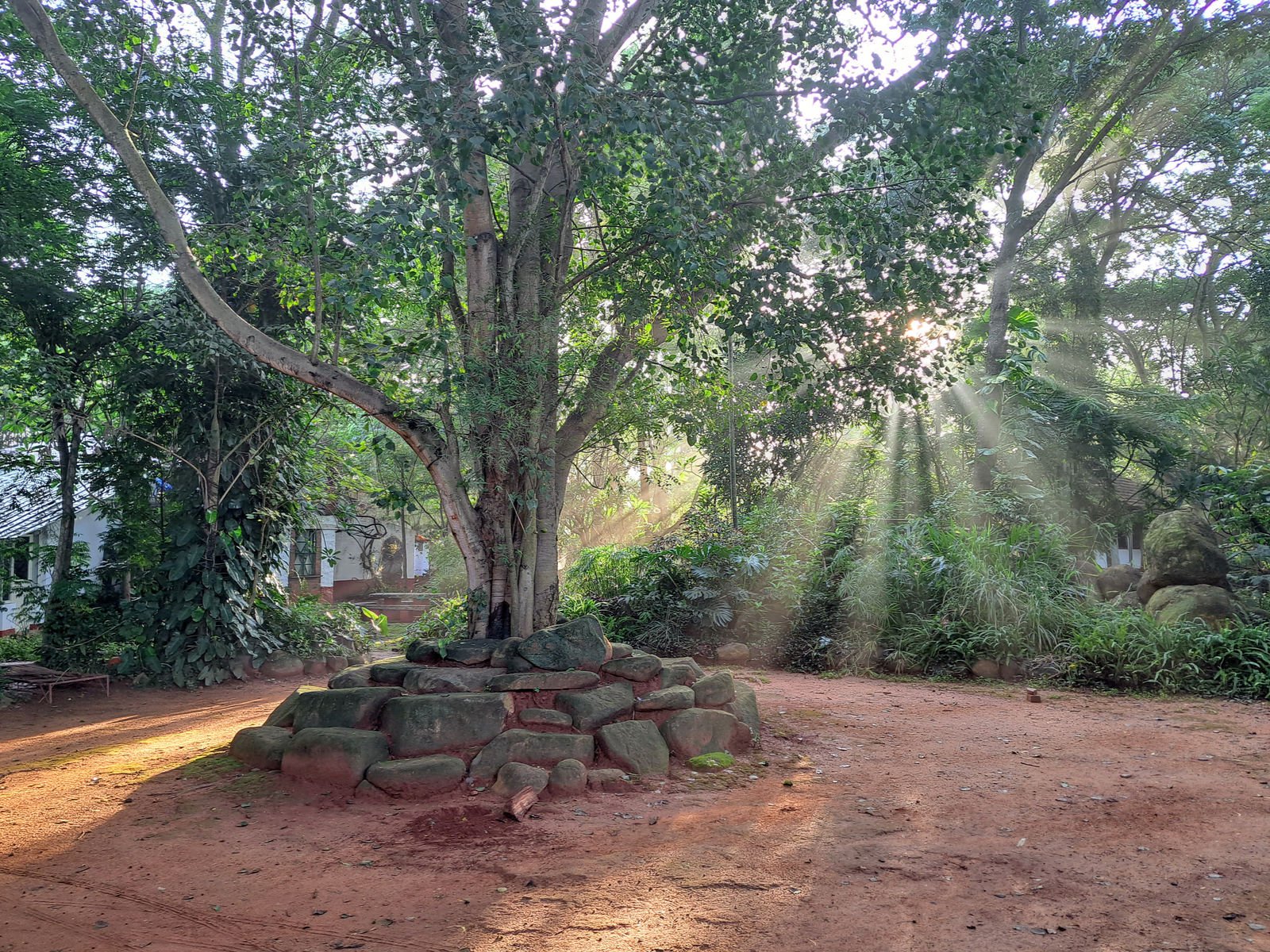
ABOUT US
Stepwell is a travel provider started by Kiran Sahi and Imogen Sahi.
Kiran and Imo bring together a lived understanding of both the Indian and British contexts. They share an enjoyment of travelling with visitors to India and a commitment to offering authentic, light footed and perceptive educational travel experiences.
Kiran’s Indian-based art and design background alongside Imo’s context within Science and Geography education in the UK, bring together skills which allow them to offer personalised interpretation, detailed facilitation and caring guidance during journeys within India for a wide range of travellers.
They began the project in 2004, based at their home, whilst they lived at ‘The Land’ in Silvepura village, North Bangalore. The space was developed as an arts education centre for sharing with visitors and learning together. Imo and Kiran’s Stepwell projects have expanded into offering package journeys which explore the wider context of South India. They continue to use ‘The Land’ as a base for meeting and arriving at the start, and reflecting on the journey at the end, with days spent there for creative workshops and art activities. During these days participants stay overnight in nearby accommodation that can host our visitors. Either Kiran or Imo are always the lead for each of our journeys in India, and will travel with the group to each of the locations.
Kiran Sahi
-
Kiran Sahi is the co-founder of Stepwell. He has a design background and studied at the National Institute of Design, Ahmedabad. In 1999 Kiran set up a ceramic design studio called Labyrinth at The Land on the outskirts of Bangalore where he worked with creative professionals involving local craftspeople to produce large scale ceramic murals, whilst consulting as faculty for design courses with University students. Kiran developed the studios at Land into an education and arts space for providing artistic and cultural interpretation and enabling cross cultural interactions to take place. Kiran leads the team at Stepwell which delivers responsible travel opportunities in India to natural areas that conserve the environment and sustain the wellbeing of local communities.
Kiran divides his time between activities based in Europe and the UK, where he now lives, and delivery of programmes in India, where he grew up. The overlaps, differences, and transects between East and West have been a natural and essential part of both Kiran’s life and the field in which he has chosen to work. In his writing, Kiran is interested in incorporating his experiences and understanding of the many worlds he lives in, as an insider and outsider at once.
Kiran’s work at Stepwell involves management of our education projects, delivery and teaching of workshop activities, planning and design of learning programmes, delivery of cultural interpretation, writing of interpretation resources and articles to support the learning process within India, facilitation and management of the in-country logistics, and guidance of our groups whilst in India.
Imogen Sahi
-
Imogen Sahi is the co-founder of Stepwell. She is a teacher, and a specialist in Science, Biology, and Geography - trained at Exeter and Cambridge Universities, UK. Imogen worked as a leading science teacher and teacher in charge of Biology in Surrey UK, before moving to India and co-founding Sangam and then Stepwell.
Imogen lived in India for 13 years at ‘The Land’ in North Bangalore managing the programmes that are run from there as the Education Director. During this time she also worked as an Education Training Consultant for the British Council, delivering courses directly to teachers, and is a validated master trainer with a focus on constructivist enquiry, delivering connecting classrooms programmes on the topics of global citizenship, internationalism and sustainable partnerships. She mentored and assessed for the International schools’ award, was part of an advisory team working with the state system in India on school improvement programmes and was selected to work on the contextualisation of the 20th Century Core Skills suite of training materials for the Indian context. She now lives in Wells, UK, where she works as a Leader of Teaching and Learning of Science in a comprehensive school and plans Stepwell’s projects.
Imogen’s work with Stepwell involves communications and coordination with the visiting groups and institutions that we work with and the pre-trip operational logistics management. She coordinates the development and delivery of study material, teaching resources, and education programmes that are run in India.
OUR PROCESS
-
Our experience whilst living in India and working closely alongside local communities, artists, schools and education groups has enabled us to facilitate dialogue and learning between people from different cultures and backgrounds. We began in 2004 in order to create a space for creative discussions and educational development making connections between India and the wider world. We have been running our educational programmes in India since then.
We recognise that there is a growing interest and need, in the changing educational curricula and in public awareness, for developing an authentic understanding of distant places and the wider world from a non-tourist/ insider perspective. In particular travel of this nature which is sustainable and ecological. Globalisation and political shifts are causing a change to the way in which we understand and operate as countries, organisations and individuals. There is a need for enhanced connectivity and authentic understanding. Whilst authentic, perceptive, sustainable insider travel opportunities are rare, we are in a position to be able to facilitate such quality educational experiences, and curate this type of travel journey within India.
-
We are able to organise, facilitate and manage journeys of exploration for visitors to the country. Our capacity for connected interpretation and facilitation of these educational journeys aims to enable an authentic and perceptive understanding of India. We are able to connect our experiences to the educational requirements of the visitors, and understand how experiences in India can enable meaningful delivery of the curricula. Our backgrounds and interests mean that we are well placed to be able to help to interpret between cultures and facilitate respectful discussion. We can provide opportunities for people from different cultures and backgrounds to meet, dialogue and learn from each other.
-
To enable authentic travel opportunities which explore and interpret the cultural geography of our local area.
To support and enable sustainable and ecological travel opportunities within India.
To develop a perceptive understanding of the current context of India, and how it is developing and changing.
To encourage quality learning, through creativity, by creating programmes of activities for educational development.
To open doors to an appreciation of diversity in the Indian landscape.
To facilitate meaningful connections, enable professional relationships, and develop understanding between people and communities in India and the wider world.
To enable a safe and supported process of travel.
-
How we work
We engage in detailed planning for each of our programmes so that our travel itineraries specifically meet the needs each group. We provide pre- departure preparation material and guidance for travel whilst in India to enable safe and supported travel, organise of all in-country activities, and manage the operational logistics of all elements of in country journeys.
An in-country base in rural North Bangalore: We have the use of a study centre in India, which is a spacious leafy campus from where we begin and end many of our journeys and locate our arts and education programmes with local communities and visitors from abroad. Our centre is a simple, yet comfortable and homely base for exploring south India. Groups have use of our garden spaces, cycles, and studio facilities and we organise the catering needs of each project for our daytime workshops based from this space. During our journeys accommodation is in simple and clean guest houses, hotels, eco resorts and homestays according to the requirements of each group, their needs, and their programme.
Detailed planning: We plan individually for each of our programmes working closely with the organisation and group travelling their interests and curricula. Our travel itineraries are therefore specifically planned to meet the needs each group.
We provide comprehensive pre- departure preparation material in advance of the journey, and work with each group on a personalised pre-departure programme, working carefully with each visitor on health and safety guidance for their travel and carefully risk assess all our programmes.
We provide guidance for travel whilst in India which we aim to ensure are aligned to current best practice guidelines for travel in India to enable safe and supported travel.
We organise of all in-country activities, accommodation, catering, transport and management of the operational logistics of all elements of in country tour itineraries, and connecting clients to send payments direct to in-country suppliers.
We develop focussed activities for learning during our tours, often involving experiential and participatory projects, encouraging enquiry based, questioning pedagogies to enable direct authentic learning opportunities.
We provide interpretation resources throughout the journey, providing curriculum linked information, and case study materials to support learning.
We facilitate each of our programmes, accompanying and guiding with interpretation and explanation.
We enable connections to be made, facilitating links with people of shared interest in India, enabling dialogue, masterclasses and learning programmes to learn from and with each other.
We arrange collaborative activities which involve working alongside partner schools and organisations, developing joint learning activities on a common theme, and facilitating school based learning placements.
Our leaders
Stepwell is supported by a team of professionals recognised in their fields as educators and creative individuals.
“This was an unusual visit in that we were able to use a simple, delightful study centre — The Land —as a base. This group certainly felt that this space, located in a semi-rural area outside Bangalore added to the ‘authentic’ nature of the experience. We particularly loved the fabulous South Indian vegetarian lunches cooked for us! Our guides were extremely well-informed, both about India and also the UK education system (one of them being a UK based science teacher).”
OUR PLACE
Our study centre in North Bengaluru, "The Land," combines rural South Indian simplicity with Western amenities, enabling comfortable interaction and collaboration among diverse groups.
-
“The Land” is a two-acre study centre with a serene wooded garden, based in the village of Silvepura, where the Sahi family have lived for three generations. Many of our group travel programmes begin and end their journeys from this location, offering a tranquil and spacious setting for daytime workshops and activities. This peaceful environment allows for reflection and group discussions, providing a calm start and end to our journeys. From here, we venture out into the landscape, connecting with the local communities and the rural context before exploring the urban landscape and other locations during the visit.
-
The Land garden has grown over many years and is an environment that is home to much wildlife, including insects, birds, butterflies, moths, frogs, and toads. The birdlife is vibrant on the Land. We have flame-backed woodpeckers, spotted owlets, two types of barbets, crow pheasants, tree pies, sunbirds, magpie robins, wagtails, Koels, bulbuls, hoopoes, mynahs, and many, many more. It also has many flowering shrubs and trees, landscaped areas with water bodies and spaces for meetings and discussions. We have a circular seated fire pit, which we use throughout the day for circle gatherings and conferences and in the evenings for bonfires. An open structure known as ‘the chapel’ functions as a quiet meditation space and welcomes people of all religions or none.
-
Our art studios include screen printing facilities, a full-sized block printing table and many carved wooden blocks. Our pottery studio, designed for workshops, is equipped with a raku kiln, an electric wheel, a kick wheel, glaze equipment, and equipment for welding and woodcarving. We also have spaces for playing sports: volleyball, badminton, ball games, and play areas for small children.
-
We balance simplicity and Western comforts so that our journeys provide an authentic experience of rural India and enable people from the UK and other countries to feel comfortable, at home, and safe. There is a wide range of overnight hotel accommodation nearby, so we can easily use this space during the day. We have found that groups appreciate the sense of home “The Land” offers while arriving in a busy and unfamiliar environment.
“The past ten days have been a truly wonderful and eye opening experience! Learning about India from the safe haven of ‘The Land’ has been an excellent introduction to travelling. I feel that the more I have learnt - the more there is to discover... I hope to come back and continue exploring. Thank you so much for the warm welcome, the time you have spent taking us places and answering our questions. The food was amazing!”
OUR STORY
-
The Sahi family arrived in Silvepura Village, Karnataka, South India in 1972. Jyoti Sahi is an Indian artist and theologian with an upbringing encompassing both Hindu and Christian faiths. Jane Sahi is an Educationalist born in England and moved to India in 1968 in search of a deeper understanding of Gandhi’s life and values. In India, she met a number of individuals who helped shape her perspective and ideals. Over three generations, the Sahi family has worked closely with the local community and with artists and educators who have visited them from India and across the world.
-
Jane started ‘Sita School’ in 1975 which then for a span of 40 years offered primary and middle school education for the community of Silvepura, offering alternative creative education. The school became a place for sharing ideas and resources with educators and schools from many different backgrounds and now runs as a resource centre for teachers and schools.
-
Jyoti was interested in the early Ashram School experiments of Rabindranath Tagore. In 1977 it was suggested to Jyoti that he might initiate an “Art Ashram”. This was only realized in 1983 when Jyoti was enabled to buy a piece of land and set up what was named “The Indian School of Art for Peace” or INSCAPE. A society was registered in that name, and work on building some simple buildings and a studio space started in 1984. A group of young people came to live at the “INSCAPE art ashram” and help in a programme relating Art and Education. Jyoti continued his commission work designing for alternative buildings inspired by the ideas concerning a vernacular architecture using indigenous styles of art and architecture. The programme at the “INSCAPE art ashram” was based on experimenting in this approach to art forms in an Indian context.
-
In 1998 Kiran and Roshan Sahi developed ‘The Land’ as a place where a community of artists could work together on many different forms of artistic sculptural and ceramic forms, working particularly with large scale glazed ceramic murals. Kiran had been trained at the National Institute of Design in Ahmedabad and Roshan in Shantiniketan art school in Calcutta. Together and with their father Jyoti Sahi, and with a group of collaborating artists they created ‘The Land’ into a place for developing artistic ideas, and they formed an arts collaborative which they called ‘Labyrinth’.
-
From 2000, Kiran and Imogen Sahi developed ‘The Land’ into a place that accommodated short-term groups of visiting teachers and educators and a place from which study visits could be based. Imogen joined the Sahi family to develop ‘The Land’ into a place for educational development alongside its artistic programmes, using her background as a teacher. ‘Sangam’ was formed in 2003 as an education and arts group based at the land.
Sangam ran placed-based educational programmes for visiting teachers, students and school groups, working closely alongside the local community and schools, and they began offering educational training programmes for students and teachers alongside visits for groups of interested adults to travel and learn about India’s wildlife, arts and cultural context. The strength of Sangam’s range of programmes was in their ability to connect with the local context, to understand both the Western and Indian context of the people that they work with, to understand India’s rapidly changing cultural context, and to be able to interpret India for people visiting it from abroad.
-
In 2016, Sahi Education Consultants was formed as a UK-based education consultancy to connect with UK-based clients whilst partnering with Sangam in India. SEC offered India related education projects with journeys based from their base ‘The Land’ in India. We consulted on group travel across South and North India connecting with local communities and learning from the local context. This project was built on, continuing the work of Sangam, and developed into a principle travel provider focussing on sustainable, authentic, perceptive education programmes within India, trading under the name ‘Stepwell’.
Stepwell works with a range of education groups, teachers, students and special interest groups, taking them on slow and gentle travel programmes -learning as they travel.
Stepwell took a pause during the period of the global pandemic, and re-launched their programmes as a travel provider in 2023.
We welcome you to join us on the next phase of our journey.
“I would recommend this visit to all schools wishing to develop their understanding of a different culture. What a life-changing experience it was! We all came back inspired and with a much greater understanding of the issues which affect the lives of the people in the rural and urban communities in southern India. The week was packed with a whole range of activities including: visits to schools, temples and markets; studies of village and urban life; a variety of cultural workshops in art, dance and music. The staff were extremely knowledgeable and were able to answer any questions put to them. The whole experience can be used in so many ways within the school curriculum.”




